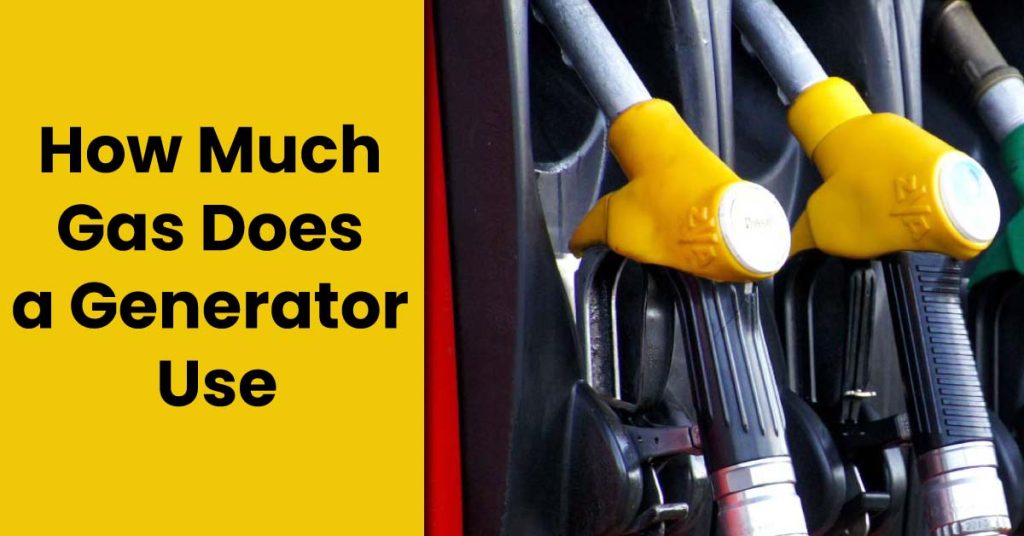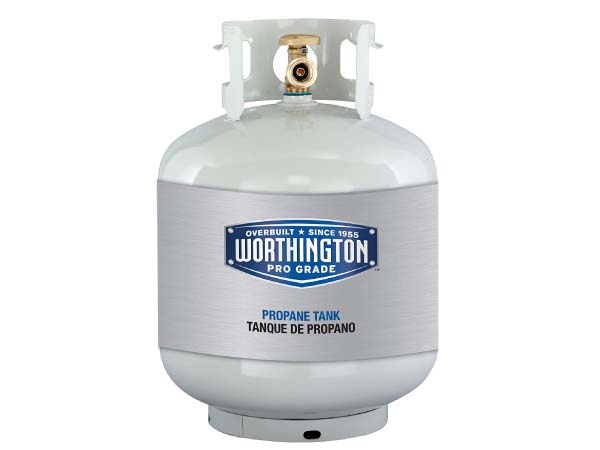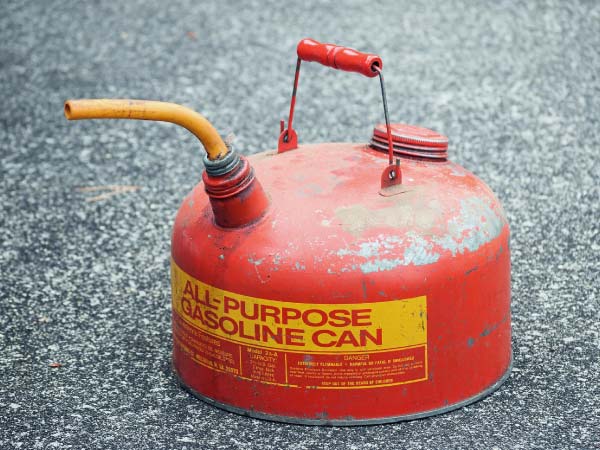How Much Gas Does a Generator Use? Facts & Figures
In this article, you will learn how much gas a generator use per hour, the cost of fuel per hour, and the factors gas usage depends on.
Natural disasters are growing by the day with the increasing global warming. In the last 5 years in the U.S, an average of 17.5 natural events have occurred annually.
Natural disasters are causing frequent and prolonged power outages in various parts of the world. A person in the U.S suffered an average of 8 hours without electricity back in 2020. This is twice as long as the average back in 2013. The power outages are increasing even more since 2020.
To protect ourselves from sudden load shedding, people are rapidly purchasing portable generators or standby generators for the house.
But, have you ever wondered how much a generator uses?
How Much Gas Does a Generator Use?

How much gas a generator use depends on the generator type, power output, and fuel type. Normally, a 2000-watt generator consumes around three-quarters of a gas per hour. The generator gas consumption rate may also vary if it is running on full power. Portable Generators consume less on eco mode.
How Much Propane Does a Generator Use?

A normal propane generator consumes 1.4 gallons per hour to run at 80 to 95% load. This consumption may differ from generator brand, power output, and generator type. A typical 5KW portable inverter generator will consume less than 1.4 gallons per hour to run at 70 to 95% load. Propane burns efficiently and cleanly, it is readily available, there is no storage problem, and it is cheap.
How Much Natural Gas Does a Generator Use?
A typical 7KW natural gas generator consumes about 115 to 118 cubic feet per hour to run at 70 to 90% load. It can consume even less natural gas if the generator quality is high. Natural gas is clean and efficient. The bill is calculated in kWh. If a natural gas pipeline is supplied into your home, you don’t need to worry about fuel storage.
How Much Diesel Does a Generator Use?
A normal 8KW whole-house diesel generator consumes about 0.5 to 0.6 gallons per hour to run at 70 to 90% efficiency. Diesel is an extremely efficient fuel with low ongoing fuel costs. The maintenance of diesel generators is easy and the lifespan is longer compared to other fuel types. It is a bit of dirty fuel though. It emits a ton of CO2 into the atmosphere.
Factors Affecting Generator Gas Consumption Rate
1. Type of Generators
Generators are either portable inverters, conventional, or standby. Each type has its rate of fuel consumption.
Standby Generators:
Standby or whole house generators are permanently installed, they start automatically, and they consume a bit of extra fuel because they are the most powerful type of generators on the market.
The power output of standby generators ranges from 8000 watts to 2000 watts. Bigger the power output, the higher the fuel consumption.
Conventional Portable Generators:
As the name suggests, a conventional portable generator can be moved around and they are mostly used as a backup power source for emergencies.
Conventional portable generators are not preferred for camping because they are a bit loud. They eat a lot of fuel compared to inverter generators.
Portable units can go up to 15000 watts of power output so you can imagine how much fuel they will eat.
Inverter Generators:
Inverter generators are the most fuel-efficient and convenient type of portable generator. They are the smallest and most compact of all generators.
They consume much less fuel than conventional portable generators and the power they produce is clean and stable to use for sensitive electronics.
Inverter technology converts the unstable AC power to DC power, then convert it back to clean and smooth AC.
2. What Type of Fuel Does a Generator Use?
Different fuels have different burning efficiency. Some are cleaner, some burn quicker, and some burn dirtier.
Diesel:
Diesel is a very efficient fuel with 38MJ per liter burning efficiency. It is less flammable and less expensive than gasoline, but there are some environmental downsides to diesel, it emits more CO2 into the environment.
It is mostly used in large generators. A typical diesel engine contains a compression ratio between 14:1 and 25:1.
An 8 to 10KW diesel generator will consume about 2.4 liters in an hour.
Gasoline:

Gasoline is readily available, it emits less Co2, and it is less expensive with normal burning efficiency.
Gasoline generators have a low initial cost, the noise level is significantly lower than the competition, they have few maintenance problems, the compression ratio ranges from 8:1 to 12:1, and they are available in sizes from 1000 watts to 10000 watts.
A conventional portable 5000-watt gasoline generator can eat up to 18 gallons of fuel during an entire day.
That is not very efficient but the inverter gasoline generators eat a lot less fuel than conventional gasoline generators.
So if want to save some bucks, go for an inverter generator.
Propane:
Propane burns the most efficiently and cleanly compared to gasoline and diesel. Storage of propane is no problem at all, it doesn’t evaporate easily like gasoline, and it doesn’t emit much CO2.
A 500-gallon propane tank can continuously power a home for an entire week.
A 6KW propane generator uses about 1.42 to 1.5 gallons of propane per hour.
A dual-fuel generator with propane as a fuel choice is the most efficient and productive investment than a traditional gasoline generator.
We have compared the propane and gasoline generators make sure to have a look if you still didn’t get your answers.
Natural Gas:
Natural gas is a cleaner, more efficient, cheaper, and abundantly available version of fuel, but it is not entirely eco-friendly. None of the fossil fuels is entirely clean anyway.
If you have a natural gas pipeline in your home, then a natural gas generator is the most cost-effective and reliable option for you.
A 6 to 7KW natural gas generator can consume up to 115 cubic feet of natural gas per hour which is fairly reasonable.
It can consume even less gas if you have a portable inverter generator.
3. Fuel Used per Hour
Different generator types use different types of fuel, and the burning efficiency also depends on the generator’s brand, model, and fuel type.
A rough estimation of the amount of fuel used per hour by fuel type is shown below.
| Generator (KW) | Fuel Type | Fuel Used Per Hour |
|---|---|---|
| 5KW | Gasoline | 0.75 to 0.8 gallons |
| 7KW | Natural Gas | 115 to 118 cubic feet |
| 8KW | Diesel | 0.5 to 0.6 gallons |
| 5 to 6KW | Propane | 1.4 to 1.5 gallons |
4. How Much Does It Cost to Run a Generator?
| Generator Type | Gallons of fuel per hour | Current Price per Gallon | Total Cost |
|---|---|---|---|
| 8KW Diesel | 0.5 to 0.6 gallons | $5.645 | $2.8225 |
| 5KW Gasoline | 0.75 to 0.8 gallons | $5.04 | $3.78 |
| 7KW Natural Gas | 115 to 118 cubic feet | $0.0132 | $1.518 |
| 5 to 6KW Propane | 1.5 gallons | $3.0 | $4.5 |

Josh is a highly skilled electrician with specialized expertise in the field of generators. With years of experience under his belt, he has established himself as an expert in all aspects of generators, ranging from installation and maintenance to troubleshooting and repairs. Josh’s in-depth knowledge of electrical systems and his commitment to staying updated with the latest industry advancements make him a reliable and sought-after professional.
